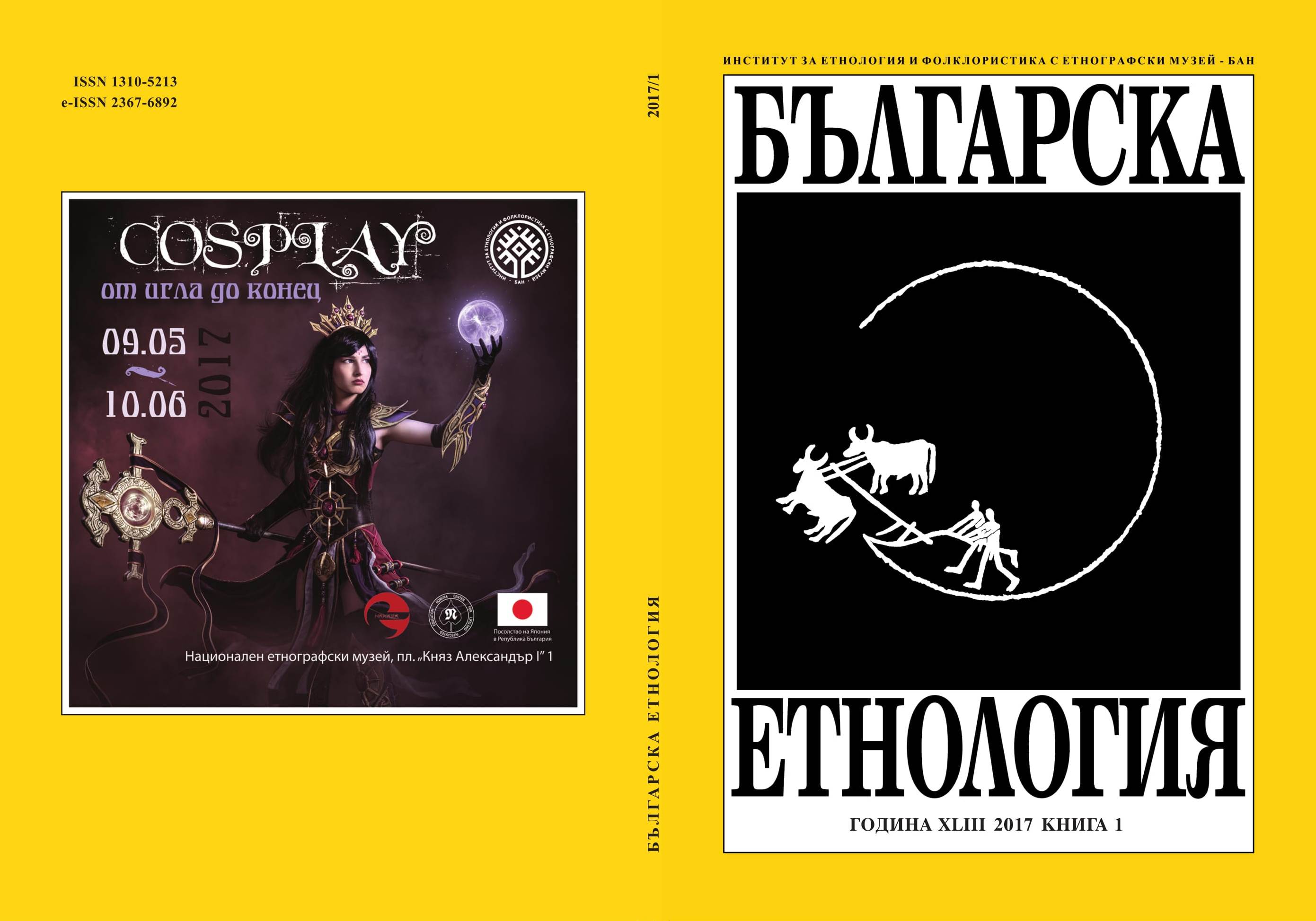По трудния път: Цигански организации в Шумен
(1944–1990)
The Hard Way: Roma Organizations in Shumen (1944-1990)
Author(s): Dimitrinka DemirovaSubject(s): Anthropology, Theatre, Dance, Performing Arts, Cultural history, Customs / Folklore, Human Geography, Regional Geography, History of ideas, Local History / Microhistory, Oral history, Political history, Social history, Cultural Anthropology / Ethnology, Culture and social structure , School education, Adult Education, History of Education, Social development, Family and social welfare, Nationalism Studies, Rural and urban sociology, Sociology of Culture, Pre-WW I & WW I (1900 -1919), Interwar Period (1920 - 1939), WW II and following years (1940 - 1949), Post-War period (1950 - 1989), Transformation Period (1990 - 2010), History of Communism, History of the Holocaust, Cold-War History, Ethnic Minorities Studies, Sociology of Politics, Globalization, Sociology of Education, Politics of History/Memory, Politics and Identity, Identity of Collectives
Published by: Институт за етнология и фолклористика с Етнографски музей при БАН
Keywords: ethnology;history;Roma and Gypsy;Roma organisations;communism;
Summary/Abstract: The purpose of the present article is to trace the history and to show the activities performedby the gypsies/Romani organizations in Shumen, Bulgaria during the period between 1944 and 1990. The history of these organizations is going through several periods which match the political periods regarding the gypsy population in Bulgaria.It was founded in 1946, when Bulgaria was leading a policy of ethnical recognition of the gypsies and a wide consideration of their cultural and historical identity. Inthe beginning of the 1950s, due to the fear of the so-called “turcheene” (i.e. public demonstration of the Turkish ethnic identity) among a large part of the gypsies, there was a turning-point in the public policy – the Cultural and Educational organization of the gypsies was forbidden and they got into the hands of the “Fatherland Front” (“Otechestven front”). In spite of the restrictions and interdictions, in 1967 the leaders of the Gypsy movement in Shumen restored their organization by the name of “Roma”, but they didn’t get the recognition and validation from the government. In spite of this, they continued to work for the protection of the Gypsy community in Shumen and in all of their activities in several basic directions (socioeconomic, political, educational and cultural) were performed by the organization’s name. This continued until the beginning of the 1990s, when the organization was recovered, andalong side this a number of new organizations arose.
Journal: Българска етнология
- Issue Year: 2017
- Issue No: 1
- Page Range: 45-67
- Page Count: 23
- Language: Bulgarian

